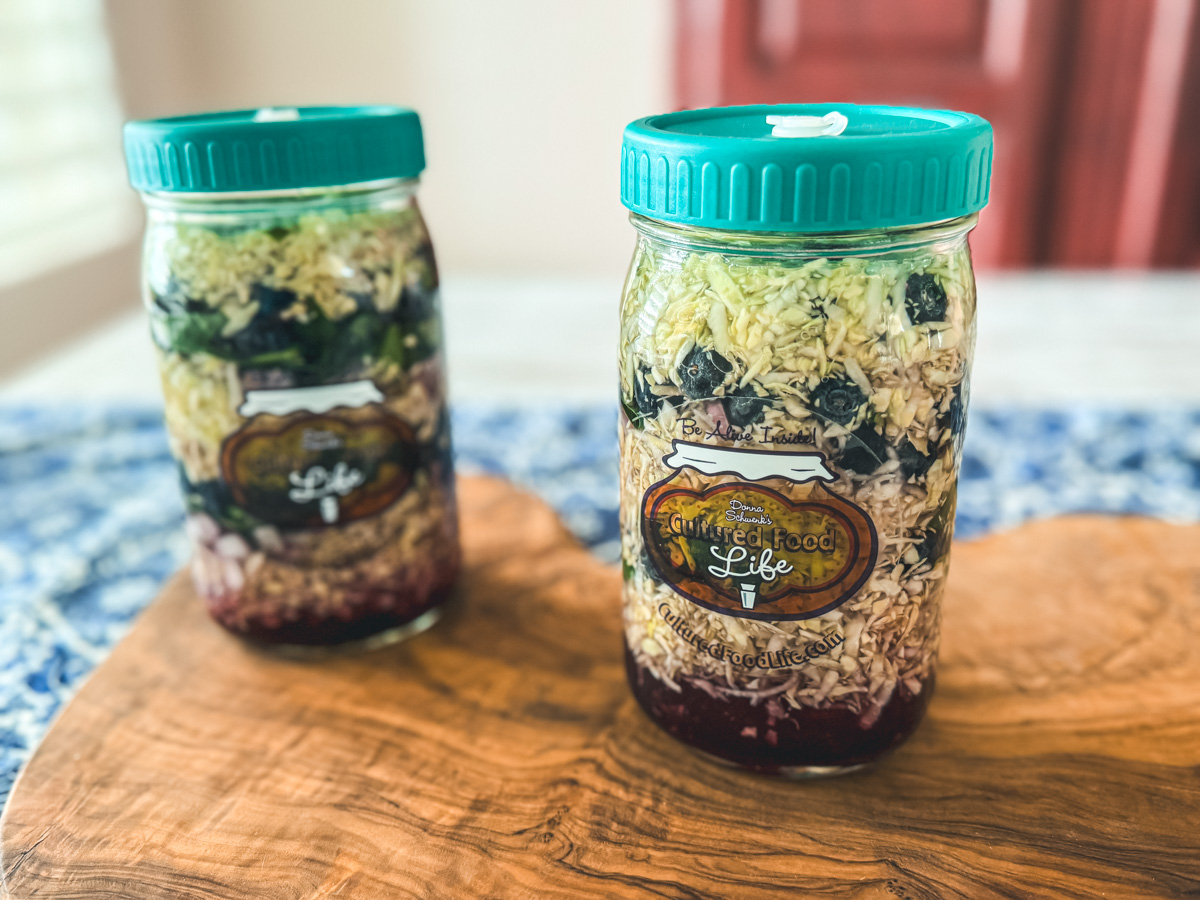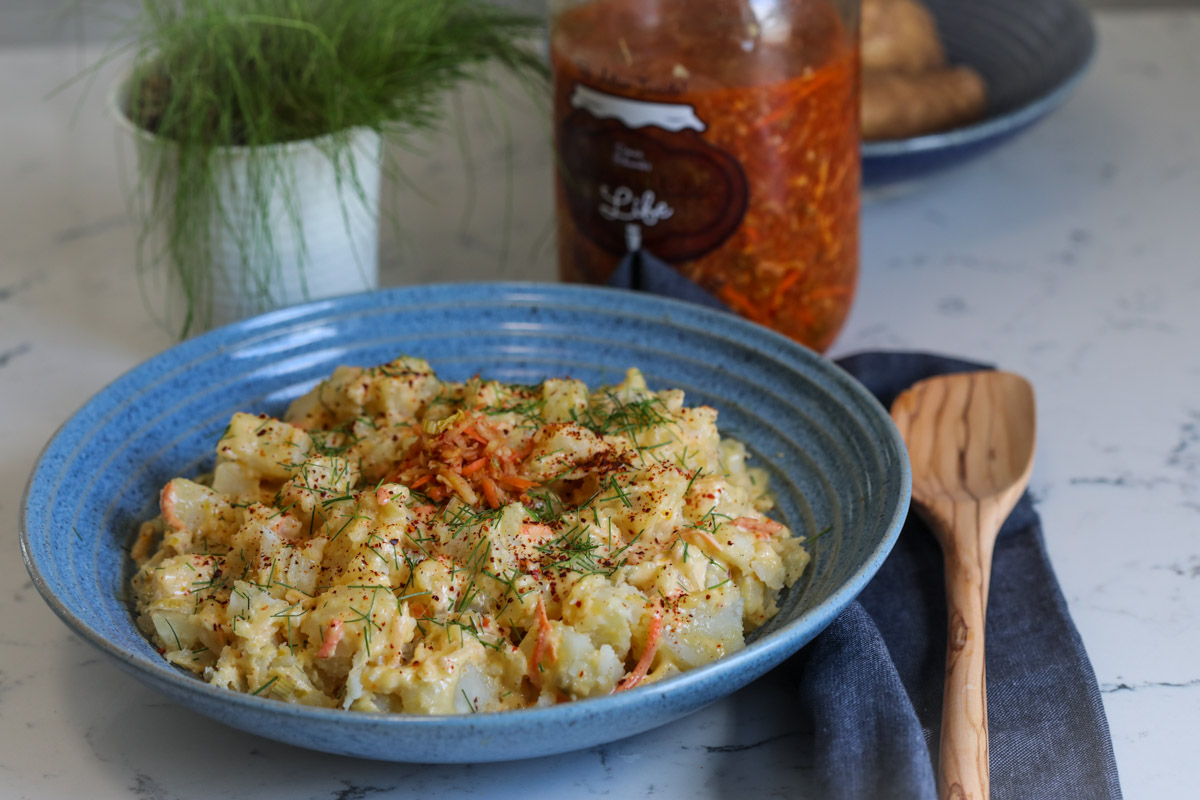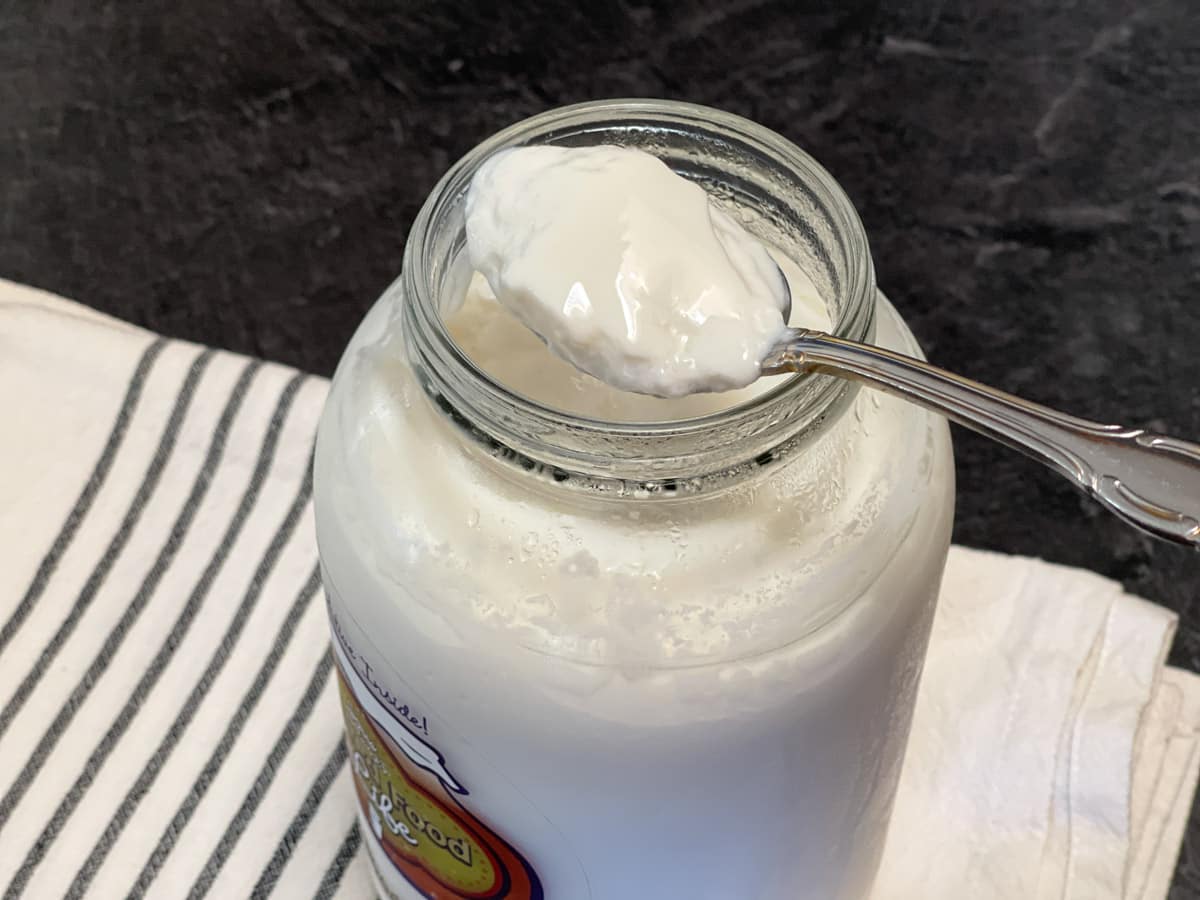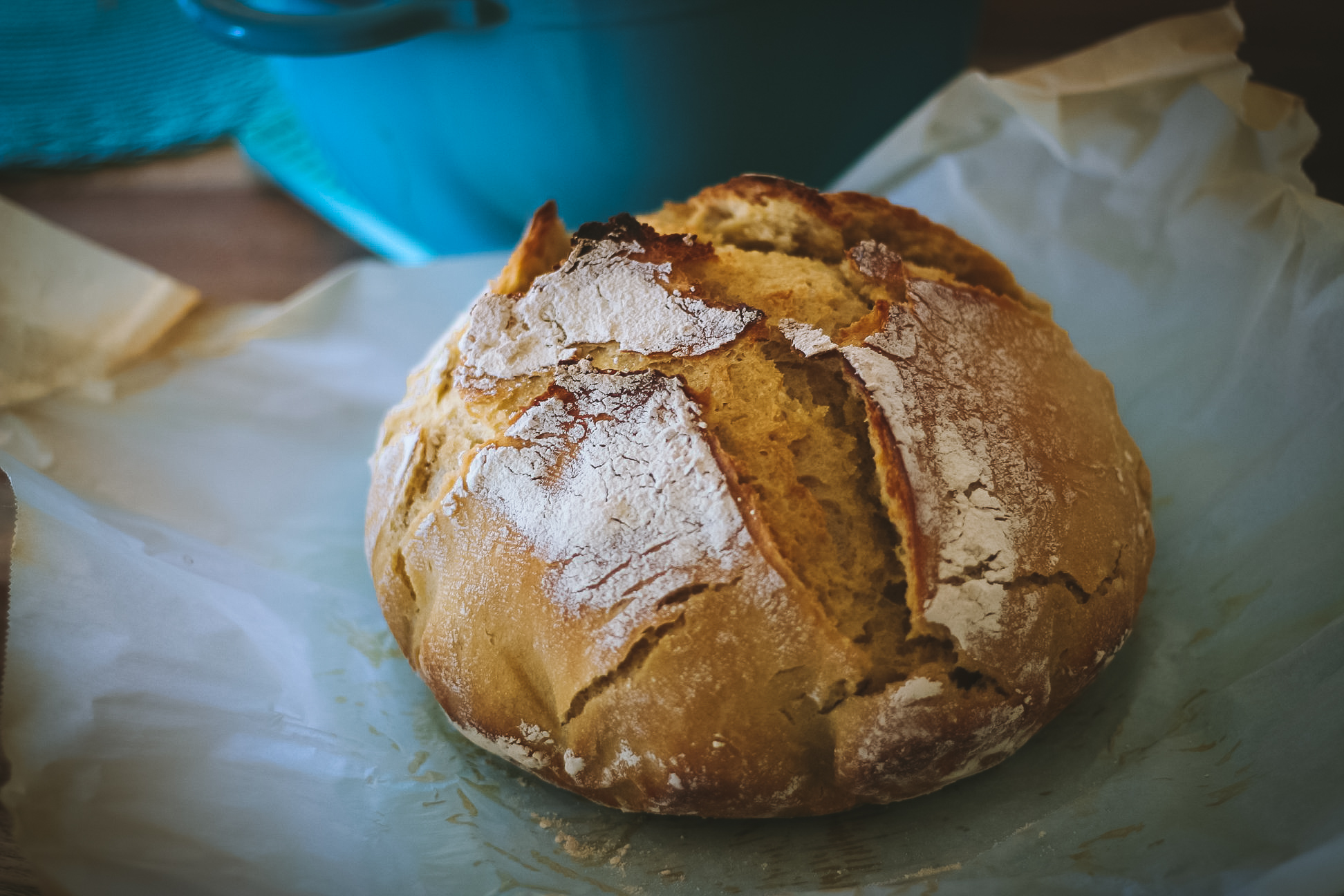
Brain Health and Fermented Foods
How your gut and Brain work together

Fermented foods are truly magical when it comes to nurturing our microbiota-gut-brain axis. These living foods don't just taste amazing—they transform our health from the inside out. They do this by modulating our immune system, strengthening our gut barrier, and even regulating our neuroendocrine system - fermented foods work wonders.
The beneficial microbes and metabolites in fermented foods interact with our body's receptors, fine-tuning our immune responses and also boosting immune health. They help enhance the integrity of our intestinal and blood-brain barriers, thanks to those wonderful microbial metabolites. This means a healthier gut and a clearer mind!
But that's not all—fermented foods also play a role in balancing our hypothalamic-pituitary-adrenal (HPA) axis and boosting serotonin levels, which is our feel-good hormone. And believe me when I say I have experienced this time and time again with kefir, yogurts, cultured vegetables, and fermented drinks like kombucha and kefir soda.
Our gut is home to hundreds of different strains of bacteria. What makes each person’s microbiome unique is the different factors that influence the species and diversity within our gut. These factors range from maternal health before birth to what we currently eat and consume, our environment, stress factors, and how much we exercise.
What makes food such an important part of gut health is that it is an easy method we can use to diversify and strengthen (or weaken) our gut flora. The gut-brain axis is closely linked to the health and diversity of our microbiome. This means that the less diverse our diet, the more our mental and brain health can suffer.
We know these wonderful bacteria help with digestion, nutrient absorption, and the production of beneficial byproducts that can directly affect our mental health. So, by embracing a diverse and probiotic-filled diet we’re not only nourishing our bodies but also supporting our mental well-being.
hormones and Your gut

A review in Neuroscience & Behavioral Reviews shows how these fermented foods may be associated with improved cognitive performance, specifically because they can influence the microbiota-gut-brain axis. [1]
- Kimchi
- Sauerkraut
- Kefir
- Miso
- Kombucha
- Yogurt
The research also highlighted that fermented foods have a direct impact on the enteroendocrine system, which influences important hormones like ghrelin, neuropeptide-Y, glucagon-like peptide 1 (GLP-1), and serotonin. These hormones play key roles in our body's functions, from regulating appetite to boosting our mood. Fermented foods are wonderfully rich in probiotics, which help increase the amount of GLP-1. Fermented foods help our hormones stay balanced.
Other studies investigating the impact of fermented soy-based products such as tempeh, miso, natto, and fermented soy sauce revealed that higher consumption of soy-based products correlated with better cognitive function in women [2] and was also associated with lessening of age-associated memory decline. [3,4]
ADHD and Kefir
A new study of kefir’s effects on ADHD symptoms, sleep, attention, and the gut microbiome in children has some wonderful news! Daily kefir consumption led to noticeable improvements in ADHD symptoms and sleep quality. Specifically, children in the kefir group experienced a reduction in ADHD symptom severity as measured by the SWAN scale, and there were positive changes in their gut microbiota composition.
These findings are incredibly encouraging. They highlight the potential of kefir to support the health and well-being of children with ADHD. They're a great reminder of how powerful and transformative fermented foods can be.

Bifidobacteria
Neuroprotective Effects
Bifidobacterium may have neuroprotective effects. Research suggests that these probiotics can support brain health by influencing the gut-brain axis. For instance, B. longum has been found to upregulate the expression of dopaminergic neurons, potentially offering protective benefits against neurodegenerative diseases like Parkinson’s disease. This could help maintain cognitive function and mental clarity as we age. [5]
Anti-Inflammatory and Antioxidant Properties
Bifidobacterium has anti-inflammatory properties that help modulate the immune response and reduce inflammation. Bifidobacterium produces antioxidants that combat oxidative stress, protecting brain cells from damage. This dual action helps preserve cognitive function and may reduce the risk of conditions such as Alzheimer’s disease.
We have several cultures that have Bifidobacteria. Kefir soda and Yogurt Plus.

Einkorn Wheat and Brain Health
Einkorn wheat is a fantastic source of lutein, the main carotenoid found in the brain. Lutein plays a crucial role in supporting brain health, especially when it comes to learning and visual processing. Studies have shown that increasing lutein levels can lead to improved memory and boost overall brain performance. [6,7,8,9]
Einkorn wheat contains 213% more lutein, 76% more manganese, 42% more zinc, and 37% more phosphorous than regular wheat. It also contains more magnesium, iron, thiamin, niacin, vitamin B6, and 29% more protein than wheat. By incorporating einkorn into your diet, you’re giving your brain the lutein it needs to function at its best.
What’s even more fantastic is that einkorn contains a different type of gluten for fewer allergies and less phytic acid than modern wheat, making it easier to digest and more bioavailable to our bodies. [10]

Kombucha For Brain Health
Kombucha, a fermented drink, is a powerhouse for brain health! Let’s dive into the wonderful benefits it offers:
Amino Acids: Kombucha contains amino acids, which are essential for the production of serotonin. Serotonin is known to improve mood and reduce stress, helping you feel happier and more relaxed.
Catechins: When kombucha is made with green tea, it contains catechins. These incredible compounds may help boost memory, keeping your mind sharp and focused.
Polyphenols: Kombucha is also rich in anti-inflammatory polyphenol compounds. These amazing compounds support brain health by reducing inflammation, which is crucial for maintaining a healthy mind.
Probiotics: Some studies suggest that probiotics can reduce anxiety and depression, and improve cognitive and emotional functions. Kombucha is packed with probiotics, and its anti-inflammatory effects can help alleviate depression symptoms, promoting better mental health.[11]
B Vitamins: Kombucha is high in B vitamins, including B6 and B12. These vitamins are vital for energy and mental well-being, giving you the boost you need to tackle your day with a clear and happy mind.

The Power of a Healthy Diet for Brain Health
A healthy diet plays a crucial role in maintaining and enhancing brain health. What we eat can significantly impact our mood, cognitive function, and overall mental well-being. Here’s how different nutrients and foods contribute to a healthy brain:
Omega-3 Fatty Acids: Omega-3 fatty acids, found in fish like salmon and flaxseeds, are essential for brain health. They help build cell membranes in the brain, reduce inflammation, and support cognitive function. Studies have shown that omega-3s can improve memory and reduce the risk of Alzheimer's disease and depression.
Antioxidants: Foods rich in antioxidants, such as berries, dark chocolate, and leafy greens, help protect the brain from oxidative stress and inflammation. Antioxidants like vitamins C and E can improve cognitive function and reduce the risk of neurodegenerative diseases.
B Vitamins: Whole grains like oats, quinoa, einkorn, and brown rice provide a steady supply of glucose to the brain. They are also rich in B vitamins, which are crucial for energy production and maintaining a healthy nervous system. B vitamins, particularly B6, B12, and folic acid, play a role in reducing the levels of homocysteine in the blood, which is associated with a higher risk of cognitive decline and Alzheimer's disease.
Fermented foods, such as yogurt, kefir, cultured vegetables, and kombucha are rich in probiotics, which support gut health. A healthy gut microbiome is linked to improved mood and cognitive function. Probiotics can reduce anxiety and depression, promoting a more balanced emotional state.
Leafy Greens: Leafy greens such as spinach, kale, and broccoli are packed with nutrients like vitamin K, lutein, folate, and beta-carotene. These nutrients are known for their brain-boosting benefits, including improved memory and cognitive function.
Nuts and Seeds: Nuts and seeds are excellent sources of healthy fats, antioxidants, and vitamin E. They help protect brain cells and support cognitive function. Regular consumption of nuts and seeds has been associated with a lower risk of cognitive decline.
Incorporating these brain-healthy foods into your diet can have profound effects on your mental well-being. By nourishing your brain with the right nutrients, you can enhance cognitive function, improve mood, and protect against neurodegenerative diseases. Embrace the power of a healthy diet and feel the difference it can make in your brain health!
In Summary
Here is a summary of different topics I've talked about on mental health in other articles on my site.
- Gut-Brain Connection:
The gut-brain axis is a crucial communication pathway between the gut and the brain. It involves neurotransmitters like serotonin and dopamine, which are significantly produced in the gut. These neurotransmitters play a key role in regulating mood, sleep, and overall mental health. A healthy and diverse gut microbiome supports this communication and can positively impact mental well-being. - Probiotics and Mental Health:
Probiotic-rich foods such as kefir, yogurt, and kombucha have been shown to improve mental health by influencing the gut microbiome. For instance, Lactobacillus reuteri found in certain yogurts can increase oxytocin levels, which promotes relaxation and better sleep quality. Additionally, Bifidobacterium longum has been linked to reduced stress and improved sleep quality during stressful periods. - Impact on Social Anxiety:
Research conducted on young adults found that a diet rich in fermented foods can help reduce symptoms of social anxiety. Probiotics have been shown to reduce gut inflammation, which often accompanies anxiety, thereby alleviating gastrointestinal symptoms and improving overall stress responses. - Autism and Gut Health:
Studies have indicated that children with autism often have different gut flora compared to neurotypical children. Probiotic therapy, such as the use of Bacteroides fragilis, has shown promise in reducing autism-like behaviors in animal models. Changes in gut microbiota composition can significantly impact mood and behavior through the production of neurotransmitters. - Short-Chain Fatty Acids (SCFAs) and Brain Health:
SCFAs like butyrate, produced by gut bacteria during the fermentation of dietary fiber, play a vital role in maintaining the integrity of the gut lining and supporting brain health. Butyrate has neuroprotective effects and may help defend against neurodegenerative diseases and mental health disorders. Fermented foods like kefir and yogurt are excellent sources of butyrate-producing bacteria.
For more detailed insights and recipes to boost your gut health, you can explore the articles on this website:
Listen To My Podcast
Fermented foods are truly magical when it comes to nurturing our microbiota-gut-brain axis. These living foods don't just taste amazing—they transform our health from the inside out. They do this by modulating our immune system, strengthening our gut barrier, and even regulating our neuroendocrine system, fermented foods work wonders. Tune in to learn more.
References:
- https://www.sciencedirect.com/science/article/pii/S0149763424000307?via%3Dihub#bib252
- https://www.ncbi.nlm.nih.gov/pmc/articles/PMC9416513/
- https://www.frontiersin.org/articles/10.3389/fnut.2023.1170841/full
- https://www.ncbi.nlm.nih.gov/pmc/articles/PMC8003083/
- https://www.researchsquare.com/article/rs-1969602/v1
- https://www.ncbi.nlm.nih.gov/pmc/articles/PMC8223987/
- https://www.sciencedirect.com/science/article/pii/S2475299122130404
- https://www.sciencedirect.com/science/article/abs/pii/S0733521006000786
- https://www.ncbi.nlm.nih.gov/pmc/articles/PMC4661633/#B15-ijerph-12-14068
- https://www.ncbi.nlm.nih.gov/pmc/articles/PMC5707704/
- https://www.culturedfoodlife.com/can-you-make-happiness-in-your-gut/
Are you on the list?
Sign up today and I'll send you my free Getting Started Guide!
Each week I'll send you updates, tips, recipes, and more! You might even be a winner of my weekly giveaway! (starter cultures, memberships, and more!)
Come be a part of my cultured food family!


